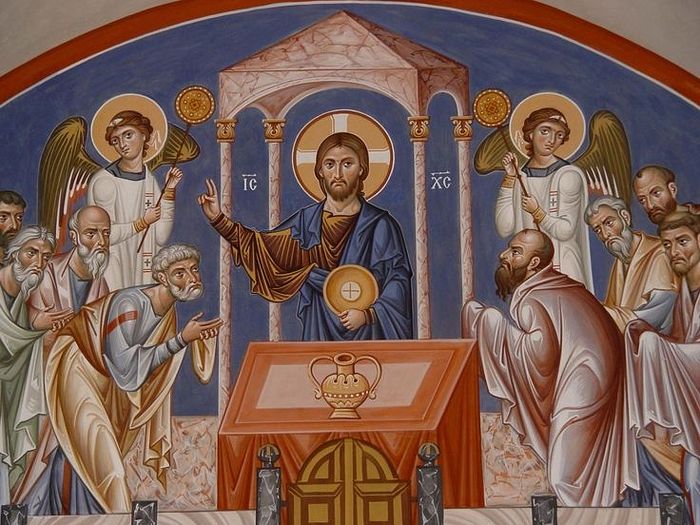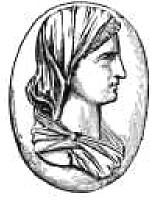The Marcionite Church is pleased to announce the reconstruction of the Marcionite Christian Divine Liturgy and sacramental rites, now available in the Litourgicon, which can be accessed here.
Litourgicon comes from the Greek leitourgía (“public worship, liturgy”) combined with the book-title ending -ikon, whose κ (kappa) becomes c in Latin, yielding -icon and identifying it as “the liturgy book.”
The Marcionite Christian Divine Liturgy is based on the ancient liturgy of James the Just, one of the Seventy Disciples of Jesus Christ. This is the oldest known complete Christian liturgy in existence and serves as the foundation for our reconstruction.
This liturgy was chosen because it was also used by Cyril of Jerusalem, who noted that Marcionite Christians worshipped so similarly to Catholics that he felt compelled to warn Catholics to be cautious when entering Marcionite churches and participating in their services.
Known interpolations have been removed, and the liturgy has been adjusted to align with established Marcionite Christian traditions, including:
- The westward direction of prayer
- The Saturday Eucharistic fast
- The practice of open communion
Notably, this liturgy already featured the Marcionite tradition of a mixed chalice.
Unlike other Christian communities, Marcionite Christians never adopted the custom of dividing the Divine Liturgy into morning and evening services, as this practice is rooted in the Jewish Temple’s worship structure and the Hebrew Bible’s instructions for morning and evening sacrifices.
Additionally, the Marcionite Christian sacramental rites of Holy Baptism, Holy Chrismation, Holy Reconciliation, and Holy Ordination have been reconstructed based on the ancient rites found in the Constitutions of the Holy Apostles. These rites have been adapted to reflect known Marcionite Christian traditions, such as:
- Fasting for an entire day before baptism
- Anointing with oil
- Full triple (triune) immersion baptisms
- Permitting deaconesses to baptize other women
- Serving milk and honey to the newly baptized during Holy Chrismation—an intentional rejection of the Jewish prohibition against the use of honey in sacrifices
The Divine Liturgy presented in the Litourgicon is given in its longest and maximum form, to be used during Holy Week and during Major and Minor Feasts; at other times, presbyters and bishops may shorten it as they judge pastorally necessary, provided they neither add to it nor re-order any of the appointed components of the Divine Liturgy
The Divine Liturgy and other liturgical rites found in the Litourgicon are based on the work and translation of James Donaldson (Ante-Nicene Fathers, 1886).



